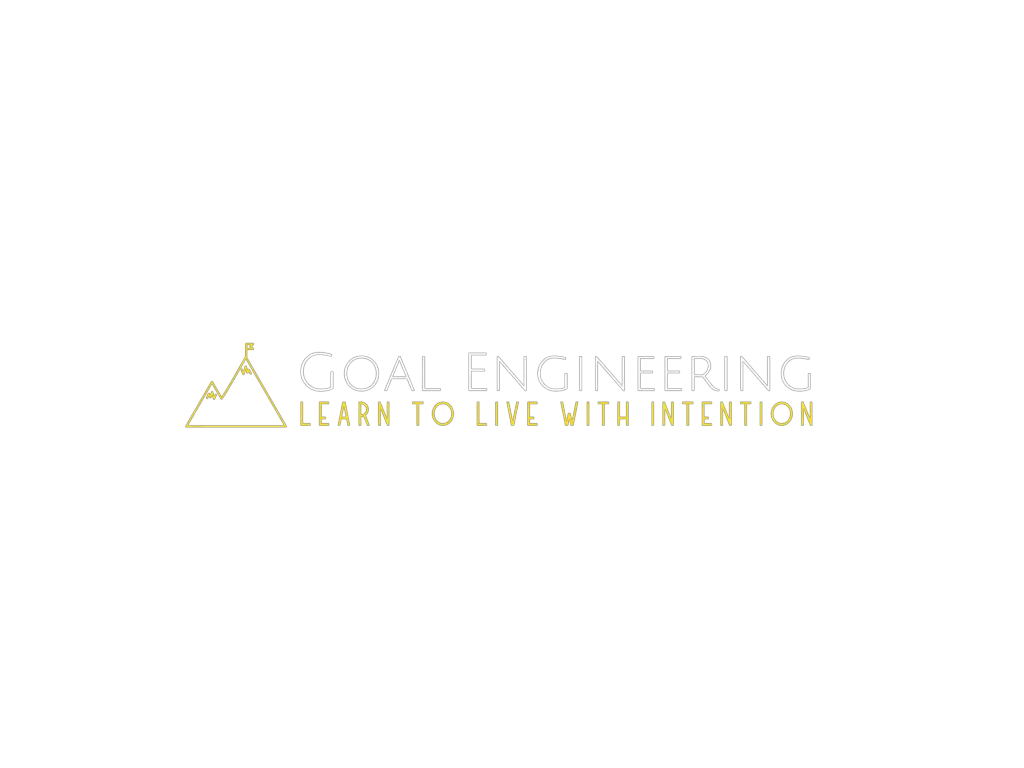You’re in the middle of setting goals and have just read about some guru who said not to set goals. Or maybe you’ve tried to reach your dreams countless times and can’t seem to do it. If you’re one of the lucky few, you’ve reached your goals and still aren’t happy. Whatever it is, you may be wondering, is setting goals even worth it anymore?
It’s still worth it to set goals right now even with all the recent criticism of goal-setting. That’s because setting goals is the only reliable way to change your life. Everything you do has a goal even if you don’t state it, and every critic still teaches goal-setting even if they don’t say it.
Everybody that tells you “don’t set goals do THIS instead” just ends up rebranding goal-setting. They might use words like systems, outcomes, or processes, but they all mean the same thing.
Many of these are not wrong about the power of what they teach and they do share valuable lessons on how to reach your dreams more effectively. They just don’t realize that goal-setting is inevitable no matter how you word it.
Let’s dive into the details of what some of the critics have said about goal setting recently and what makes it still worth it.
Setting Goals Is Still Worth It Today Even if People Criticize It
Ditching goal-setting has become popular in the last few years.
Possibly the most well-known criticism of goals has been James Clear in his book Atomic Habits. He writes:
“My results [in life] had very little to do with the goals I set and nearly everything to do with the systems I followed.”
Then the crucial question:
“If you completely ignored your goals and focused only on your system, would you still succeed?”
He believes so, and gives the example of a sports team trying to win a game. Looking up at the scoreboard makes little difference in whether or not a team will win. Focusing on playing the game right and getting better leads to winning. “Systems are best for making progress,” Clear says.
He then identifies four problems with goals, including how winners and losers have the same goals, why accomplishing a goal is only a momentary change, how goals can limit happiness, and why they can hinder long-term progress.
These may be valid points, but they only identify some of the potential pitfalls that you might fall into and roadblocks you can run into if you don’t utilize goal-setting properly. You can avoid falling into every one of these traps if you know what you’re doing when you set goals.
I think what James Clear meant was something we all think-that what we really need is a goal-setting system that actually works to keep us away from those pitfalls and roadblocks.
And this is where he got the criticism of goal-setting wrong. He even declares that goals aren’t bad, right in Atomic Habits:
“None of this is to say that goals are useless… Goals are good for planning your progress and systems are good for actually making progress.”
Too many have taken Clear’s expert advice to mean that we should ditch goals completely. He’s not saying that at all. Rather, he’s saying that we need to have our focus riveted on the daily actions that lead to the outcomes we want and make the plans and review our progress regularly so that we end up where we want to be.
Looking at the scoreboard while you’re in the game does keep you from focusing on what will make you win. Being too goal-oriented in the moments when it’s time to work has the same effect.
But looking at the scoreboard once the game is over is an absolute must if you want to find out why you didn’t win and have a shot at winning in the future.
You can’t win at creating the life you want if you don’t practice the same skill with your goals. Asking “why did this fail?” and making an action plan or setting up a habit you want to develop to win the next time is crucial. And it’s not part of the “systems” approach that Clear suggests.
Atomic Habits wasn’t the only anti-goals rhetoric I came across while researching this. There are dozens of articles that all say pretty much the same thing-“don’t set goals, but do this cool thing instead that’s really just another word for goals or a small piece of the goal-setting process.”
Forbes has an article that begins “Setting goals without setting intentions is a waste of time.” The only problem is that goals and intentions are the same thing. Don’t believe me? Just look at their definitions:
Goal: the object of a person’s ambition or effort; an aim or desired result.
Intention: a thing intended; an aim or plan.
It doesn’t stop there either. One article I found heavily criticized goals, going into detail with statistics of the hidden costs. It was much too cynical for my taste. In the end, the author recommends his four-step process, step one of which was defining a “future state.” He even says “go ahead and call it a goal if you want.”
The very first comment even asks how this is not actually goal-setting! There’s no response from the author. I’m guessing the author was probably either just having a bad day and wanted to vent or felt like getting on the anti-goal bandwagon.
Regardless of whether it’s James Clear, Forbes, or a random blogger, a lot of people are getting goal-setting wrong. So what’s the right way? And why is setting goals the only way to change your life?
If You Want to Change Your Life, You Have to Have Goals
Andre Norman spent fourteen years in prison before going to Harvard and committing to a life of helping others. He went from stabbing multiple people and almost killing another to being a fellow at Harvard and helping thousands beat addiction and change their lives.
And it was all because of his goals.
When Andre was young, he wanted to become a trumpet player. One of his teachers mentored him and helped him progress. But his goal changed when he fell in with the wrong crowd, and he ended up in prison.
While incarcerated, his purpose and identity continued to shift, this time toward becoming #1 in the ranks of the prison gangs. To reach that goal, he had to become aggressive and violent. He had to kill people if he wanted to get to the top, and he almost did.
Andre’s goal was changing his identity, and that determined his actions.
Once, in his quest to get to the top, he stabbed several inmates, although none died. He knew that he had to kill to reach his goal, so he made a plan to make that happen.
But when the moment came, the hollowness of his aim suddenly struck him:
“God gave me my ‘Wizard of Oz’ moment that day. At the end of The Wizard of Oz, Dorothy realizes there is no Wizard of Oz. It’s all smoke and mirrors. It’s all a hoax. Before that moment, I thought I was going to become the king of the world. Now I realized I was going to become the king of nowhere. This is nothing.”
As he began questioning his life, Andre began forming new goals. It all started with him wanting to get out of prison, but then he decided to focus on becoming successful. He thought “Where do successful people come from?” and that made him think to go to college at Harvard.
Andre’s new goals were changing his identity for the better, which was molding his actions.
Eight years later, Andre got out of prison, but not before letting his new goal push him to get a new mentor to help him work through his past and continue to change.
Sixteen years after Andre stepped out of prison for the first time, he became a fellow at Harvard. All that time he was working, learning, and serving those around him. He gave speeches and became well-known as the poster child for men who want to leave prison and improve their lives.
And all of this would never have been possible had Andre not set new goals. Those goals changed his very personality and identity. And those were key to changing his actions, or systems, if you might want to call them that, so that he could change his whole life.
Your goals determine your destiny. Not your past, not your personality, and not any new “trend” in the personal growth world. It doesn’t matter if you call them “systems,” “outcomes,” “objectives,” “intentions,” or something else, you’re still talking about goals. And they’re still the only reliable way to change your life for the better.
I don’t know Andre personally, but I’m pretty certain that if I could ask him, he’d say that setting goals is 100% worth the effort.
After hearing this story you might feel pretty inspired right now, and that’s awesome. I do too, to be honest. But that doesn’t mean that setting goals is suddenly going to be easy. So while we’ve established that it is worth it, how do you do it right in a way that makes them stick?
The 4-4-4 System: A Way to Set Goals That Doesn’t Leave You Wondering “Is This Worth It?”
I’ve been working on my goal-setting system for over 15 years. I started when I was just a teenager, and have added new principles and methods ever since.
I’ve refined and engineered it through my work as a missionary, my college years learning how to break down and solve complex problems, and recently as I’ve summarized over 300 non-fiction books.
I like to keep it simple, which is why there’s only three parts:
- Set just 4 goals in the categories of faith, family, finances, and fitness.
- Plan each goal 4 levels deep, including actions, outcomes, vision, and identity.
- Track your goals on 4 timelines, which are daily, weekly, quarterly, and yearly.
It’s really as simple as set, plan, track, and you can do each of these with any goal you have, even today.
First, set the goal you’d like to achieve.
Next, make your plan by setting daily actions, weekly outcomes, a long-term vision, and the identity you want to have once you accomplish the goal.
And finally, establish a tracking system by getting a place to record your daily efforts, review your progress and outcomes weekly, and see how you’re doing each quarter and year.
Here’s how it works in real-time:
- Each day you work on your goal by following your action steps.
- Then, at the end of each week, you have a weekly review in which you identify your progress and update your goal to make sure it’s attainable.
- When a quarter ends, which is usually every 13 weeks, you want to also check in that you’re getting closer to your long-term goals.
- And at the end of every year, you take some time to review your progress, write what you’ve learned and what you want to improve on, and set your plan for the coming year.
And that’s it! I’ve used this system to stick to my goals for the last two years straight, and during that time I’ve boosted my income, become healthier, grown closer to my family, and expanded my spirit.
You can do the same too, just try it out! If you want my free course that teaches the basics of it in more detail, click here.
Now It’s Time to Go Set Some Goals
Even though it’s been criticized heavily in the last few years, setting goals is still worth all the effort. And just remember, the critics still end up encouraging you to set goals even if they call it by a different name!
I’m sure that if you asked Andre Norman he’d tell you how goals were the one mechanism that finally allowed him to completely turn his life around. Andre would say that goals are worth it. He’d tell you that it’s worth putting in all that effort because of how much it will change you.
Setting goals isn’t always easy, but it will always be worth it. If you learn how to do it right you can avoid the pitfalls and use it’s power to change your life one step, habit, or system at a time.





